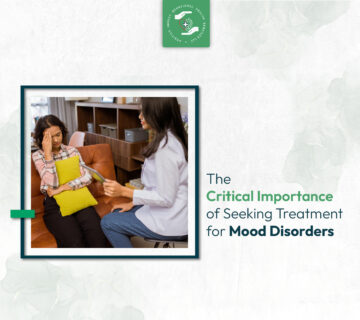Depression is a challenging mental health condition affecting millions of people worldwide. With various treatment options available, therapy services stand out as a crucial part of the healing journey. This blog will explore how therapy services can play a significant role in managing and alleviating depression.
Understanding Depression
Before exploring therapy options, it’s important to understand what depression is, its symptoms, and how it impacts daily life. Depression can manifest in a myriad of ways, impacting mood, behavior, physical health, and cognitive functioning. Recognizing these symptoms is the first crucial step towards seeking help.
Depression, often described as feeling stuck under a dark shadow, can be overwhelming. It can sap energy, diminish interest or enjoyment in hobbies, and deteriorate one’s quality of life Depression Treatment. Unfortunately, it affects everyone differently, emphasizing the necessity for personalized approaches in therapy.
Factors contributing to depression are diverse, ranging from genetic predispositions to environmental influences. Understanding these factors can aid in devising effective therapy strategies that target both the symptoms and the root causes of depression How Effective is Depression Therapy?.
Types of Therapy Services for Depression
Learn about different types of therapy services that help with depression, including cognitive behavioral therapy, psychodynamic therapy, and group therapy. Each of these approaches targets different aspects of depression, allowing for comprehensive treatment plans tailored to individual needs.
Cognitive Behavioral Therapy (CBT) is one of the most effective strategies in managing depression. It focuses on identifying and altering negative thought patterns to transform how individuals perceive and respond to their challenges 7 Key Benefits of Therapy Services.
Psychodynamic therapy, on the other hand, delves deeper into past experiences and unresolved conflicts, providing insights into current emotional struggles. This approach can unearth underlying issues that fuel depressive symptoms.
Group therapy offers a communal space where individuals can share experiences, learn from peers, and build social support, which is vital in combating feelings of isolation often associated with depression Finding a Therapist Who Can Help You Heal.
Benefits of Therapy in Managing Depression
Therapy offers numerous benefits, including a safe environment to express emotions, the development of coping strategies, and ongoing support from a professional. It can help individuals regain a sense of control over their lives by teaching skills to manage day-to-day stresses.
A major advantage of engaging in therapy is the improvement of interpersonal relationships. Effective communication, fostered through therapy, can strengthen these connections and promote a supportive network essential for mental well-being How Therapy Services Enhance Mental Health.
Moreover, therapy encourages self-discovery and personal growth. As individuals gain insights into their emotional patterns and triggers, they build resilience against future depressive episodes.
How to Choose the Right Therapy Service
Choosing the right therapy involves considering personal needs, the therapist’s expertise, and the type of depression you are dealing with. It’s essential to find a therapist who makes you feel comfortable and understood Your First Therapy Session.
Try to match the therapy approach with your personal preferences and the severity of your depression. For example, if engaging conversational interventions appeal to you, CBT might be the ideal choice.
Therapist availability and logistical convenience such as session timeliness and proximity should also factor into your decision-making process.
Taking the First Step Towards Healing
Begin your journey to healing by reaching out to a professional who can guide you through understanding and treating depression with the support of therapy services.
Starting therapy is a courageous step towards personal growth and mental well-being. To ease the process, it helps to know what to expect during the initial sessions, enabling you to engage more effectively from the outset.
Remember that therapy is a tailored journey. Patience and openness to the process can greatly enrich your experience, paving the path to recovery.
Conclusion
In conclusion, therapy services provide critical support in managing depression. Whether through cognitive behavioral therapy, psychodynamic therapy, or group sessions, these services offer personalized strategies for improving mental health. By understanding the available options, individuals are empowered to take proactive steps in their mental health journey.






No comment